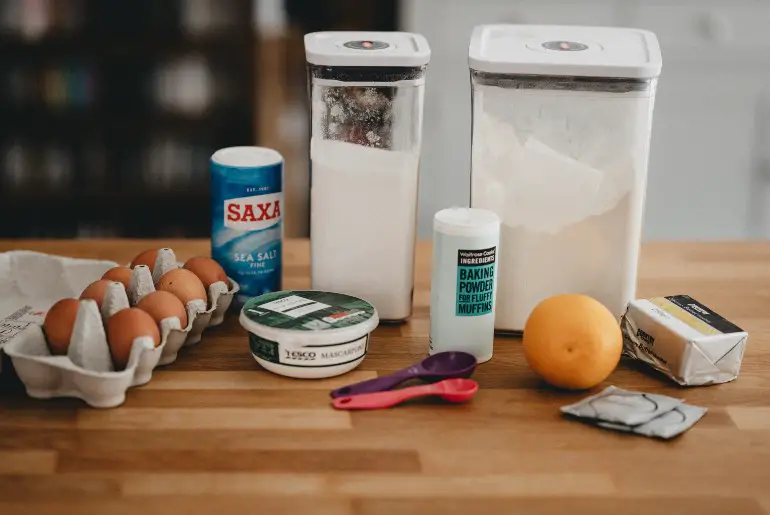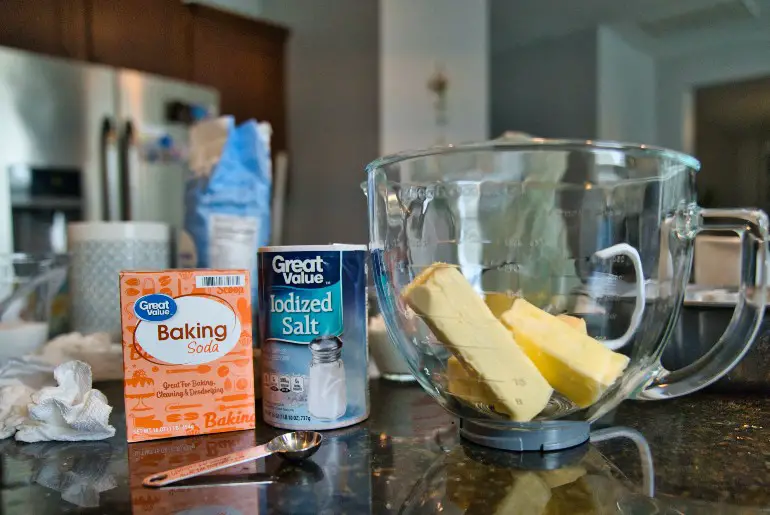Baking Powder vs Baking Soda
Baking powder and baking soda are extremely common in baked goods such as muffins, cakes, cookies, and pancakes. Baking powder and baking soda are leavening agents. This means they help baked goods rise. Once activated, baking powder and baking soda leaven by producing carbon dioxide bubbles which help make light and fluffy baked goods.
Baking soda and baking powder both help baked goods rise. Baking soda is sodium bicarbonate (which is alkaline with a pH of 8), and it requires the addition of an acid and a liquid to be activated. Baking powder is sodium bicarbonate with the addition of a dry acid added, so it only needs liquid to be activated. Baking powder also has cornstarch added to absorb moisture and keep the baking soda from activating accidentally.
The acidic ingredients that activate baking soda may not be as obvious as you might think. Applesauce, yogurt, buttermilk, molasses, cream of tartar, lemon juice, and regular cocoa powder are all acidic enough to activate baking soda.
What is Double-Acting Baking Powder
Double-acting baking powder has two different types of acids in it. They will activate at two different points in the baking process, once when liquid is added and then again once exposed to heat. Double-acting baking powder is typically sold in grocery stores and is most often called for in recipes. However, if you have a recipe calling for single-acting baking powder, you can substitute it with double-acting baking powder as they are essentially interchangeable.

When to Use Baking Powder or Baking Soda
You’ll only use baking soda if the recipe contains an acid to activate it. Baking soda also acts immediately once acid is added. This means you need to work quickly with recipes using baking soda alone. Baking powder reacts a little more slowly though you still need to get the batter in the oven fairly quickly. Baking soda is also much more potent than baking powder. If you have the same amount of baking powder and baking soda, the baking soda is four times stronger than baking powder.
How Long Do Baking Powder and Baking Soda Last?
Once opened, baking soda lasts for about 6-12 months. An unopened box lasts about 1 ½ to 2 years. Like baking soda, an opened container of baking powder lasts 6 to 12 months and up to 2 years if unopened. It is best to store baking powder and baking soda in a cool, dry place (such as a pantry) in an airtight container.
Can You Use Expired Baking Soda or Baking Powder
Baking soda and baking powder don’t go “bad” in the traditional sense. They are safe to consume and can be added to your baked goods without making you sick. However, baking soda and baking powder become less effective as they age. If you find your baked goods are not rising well, it may be time to get rid of your old baking powder or baking soda. If you find your baked goods are still rising properly, you are probably okay to continue using your baking powder or baking soda.
If you’ve caught the baking bug, I recommend checking out my Best Ever Coconut Bread or Key Lime Bars. Happy Baking!





